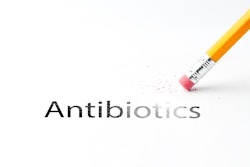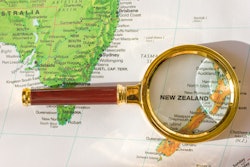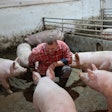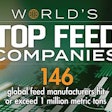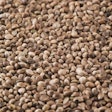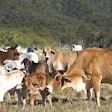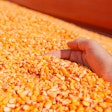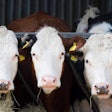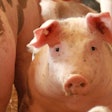
Being able to cope with today's global politics is similar to how to react to falling into cold water: try to float and don’t thrash around, keep your airways clear, stay calm until you’ve regained control of your breathing, conserve your strength, then look for help or a way to exit the water.
An organization in the current, crazy political environment runs the risk of panicking and not only becoming political but also being used for political ends. In such circumstances it is essential to stay calm by focusing on what is critical rather than on what is being thrown at you, to keep communication paths open, asses what is around you and what others see as important, use resources judiciously, and reach out to allies for shared strength.
The International Poultry Council (IPC) is an apolitical organization. It has a clear agenda and does not favor any person or party in the political landscape. This is all well and good when the norms and etiquette of political communication are adhered to. That landscape, however, has changed from a signposted and navigable pathway to a roiling quagmire of swampy sinkholes waiting to smother the unwary.
This is a global phenomenon. Although some countries might be front and center right now, they are merely the latest in a long line of countries that have experienced political upheaval. The question the IPC, and every other trade body, now faces is how we continue being apolitical in a world that changes daily, seemingly according to whimsy, and offers nothing more than "for" and "against" on every complex and nuanced issue we must deal with.
For the IPC, as for the global poultry industry, what is critical is keeping food safe, keeping food moving and keeping food available. The biggest threat to all of this is avian influenza (AI) and the burden it puts on the supply chain.
Planning for crises
This year we are putting into place a crisis management plan for AI that will promote confidence in our sector. A calm and steady cadence of communication is vital, both as a reminder that we are still here and still feeding people, but also as an antidote to the shouting that clutters up the news cycle and social media.
“Never be afraid of your own message” has rarely been truer than right now. If you have good communicators – we have some excellent ones in the poultry sector – put them at the heart of your efforts, giving them lots of good things to talk about. Choose positivity!
We all have limited resources, and the current political uncertainty is driving up costs everywhere. This is where you need shared strength with like-minded organizations. Remember that they will have different priorities, so thinking about how we make ourselves relevant and helpful to them is a crucial part of building relationships.
Ultimately, food producers and consumers want the same things and want them done the right way. Use that common ground and start asking others how you can help them to achieve their goals. You might just get what you need in return.
Being apolitical does not mean being apathetic to what is going on, and it does not mean hunkering down in isolation hoping that the political disruption will pass. More than ever, we have to trust in our people and their expertise, make every effort to find others suffering from the same system shock, and put more resources, not fewer, into building those relationships. Playing to your strengths and helping others to do the same is the only way in which we will ultimately "exit the water."


